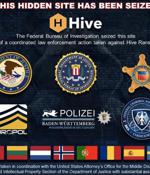Security News

Using standard hardware, the researchers demonstrated that executing the Marvin Attack within just a couple of hours is possible, proving its practicality. The Marvin Attack does not have a corresponding CVE despite highlighting a fundamental flaw in RSA decryption, mainly how padding errors are managed, due to the variety and complexity of individual implementations.

Europol supported the German, Dutch and US authorities in taking down the infrastructure of the prolific HIVE ransomware.In the last year, HIVE ransomware has been identified as a major threat as it has been used to compromise and encrypt the data and computer systems of large IT and oil multinationals in the EU and the USA. Since June 2021, over 1 500 companies from over 80 countries worldwide have fallen victim to HIVE associates and lost almost EUR 100 million in ransom payments.

GoTo is a well-known brand that owns a range of products, including technologies for teleconferencing and webinars, remote access, and password management. If you've ever used GoTo Webinar, GoToMyPC, or LastPass, you've used a product from the GoTo stable.

NU, obtained 155 decryption keys from the DeadBolt ransomware gang by faking ransom payments. When the victim enters this key into the ransom note screen, it will be converted into a SHA256 hash and compared to the SHA256 hash of the victim's decryption key and the SHA256 hash of the DeadBolt master decryption key.

MEGA has released a security update to address a set of severe vulnerabilities that could have exposed user data, even if the data had been stored in encrypted form. One of MEGA's advertised features is that data is end-to-end encrypted, with only the user having access to the decryption key.

The master decryption keys for the Maze, Egregor, and Sekhmet ransomware operations were released last night on the BleepingComputer forums by the alleged malware developer. The Maze ransomware began operating in May 2019 and quickly rose to fame as they were responsible for the use of data theft and double-extortion tactics now used by many ransomware operations.

Most industry analyst firms conclude that between 80-90 percent of network traffic is encrypted today. Google estimates that 95 percent of its internet traffic uses the encrypted HTTPS protocol, and most industry analyst firms conclude that between 80-90 percent of network traffic is encrypted today.

The MosesStaff hacking group is aiming politically motivated, destructive attacks at Israeli targets, looking to inflict the most damage possible, researchers warned. Unlike other anti-Zionist hacktivists like the Pay2Key and BlackShadow gangs, which look to extort their victims and cause embarrassment, MosesStaff encrypts networks and steals information, with no intention of demanding a ransom or rectifying the damage.

The Washington Post reports that the FBI had a decryption key for the REvil ransomware, but didn't pass it along to victims because it would have disrupted an ongoing operation. The key was obtained through access to the servers of the Russia-based criminal gang behind the July attack.

The Grief ransomware gang is threatening to delete victim's decryption keys if they hire a negotiation firm, making it impossible to recover encrypted files. Last week, BleepingComputer first reported that the Ragnar Locker ransomware gang threatened to automatically publish a victim's stolen data if they contacted law enforcement or negotiation firms.